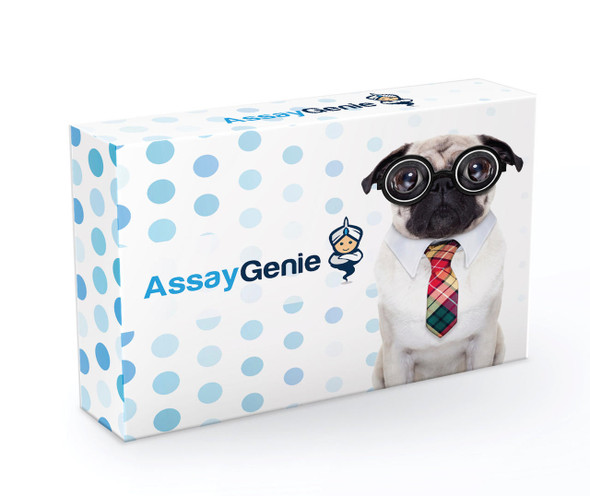Description
BAK1 Monoclonal Antibody [PAT38E2AT] (CPAB0432)
The BAK1 Polyclonal Antibody (CPAB0432) is a valuable tool for researchers studying the BCL-2 homology domain 3 (BH3)-only protein BAK1. This antibody, generated in rabbits, has high reactivity with human samples and has been validated for use in Western blot applications. By binding specifically to the BAK1 protein, this antibody allows for the detection and analysis of BAK1 in various cell types, making it an ideal choice for studies in apoptosis, cancer research, and cell biology.BAK1 is a pro-apoptotic protein that plays a crucial role in the regulation of programmed cell death.
Dysregulation of BAK1 expression or function has been implicated in various diseases, including cancer and neurodegenerative disorders. Understanding the mechanisms by which BAK1 functions in the apoptotic pathway is essential for developing targeted therapies for these conditions.Overall, the BAK1 Polyclonal Antibody (CPAB0432) offers researchers a reliable tool for investigating the role of BAK1 in cellular processes and disease pathogenesis. Its specificity and sensitivity make it a valuable asset for a wide range of research applications.
| Product Name: | BAK1 Antibody |
| Product Sku: | CPAB0432 |
| Size: | 5μg |
| Host Species: | Mouse |
| Immunogen: | Anti-human BAK1 mAb, is derived from hybridization of mouse F myeloma cells with spleen cells from BALB/c mice immunized with recombinant human BAK1 amino acids 29-187 purified from Ecoli. |
| Clone: | PAT38E2AT. |
| Reactivity: | Other bodies |
| Applications: | Western Blot, Immunofluorescence, ELISA |
| Purification Method: | BAK1 antibody was purified from mouse ascitic fluids by protein-G affinity chromatography. |
| Isotype: | IgG2a |
| Background: | BAK1 is a member of the BCL2 protein family. The BCL2 family members form oligomers or heterodimers and act as anti- or pro-apoptotic regulators which are involved in a wide variety of cellular activities. The BAK1 gene encodes a receptor-like kinase (RLK) with a putative extracellular domain, a single transmembrane domain, an intracellular-juxtamembrane domain, and a kinase domain. BAK1 localizes to mitochondria, and functions to induce apoptosis. BAK1 interacts with and accelerates the opening of the mitochondrial voltage-dependent anion channel, leading to a loss in membrane potential and the release of cytochrome c. Furthermore, BAK1 interacts with the tumor suppressor P53 after exposure to cell stress. BAK1 expression is linked to the progression of Prostate cancer. |
| Synonyms: | Bcl-2 homologous antagonist/killer, Apoptosis regulator BAK, Bcl-2-like protein 7, Bcl2-L-7, BAK1, BAK, BCL2L7, CDN1, MGC3887, BAK-LIKE, MGC117255. |
| Storage Buffer: | For periods up to 1 month store at 4°C, for longer periods of time, store at -20°C. Prevent freeze thaw cycles. |




